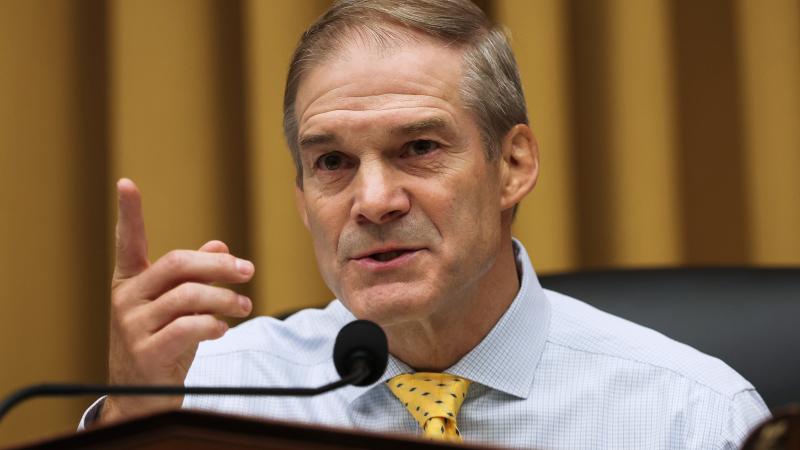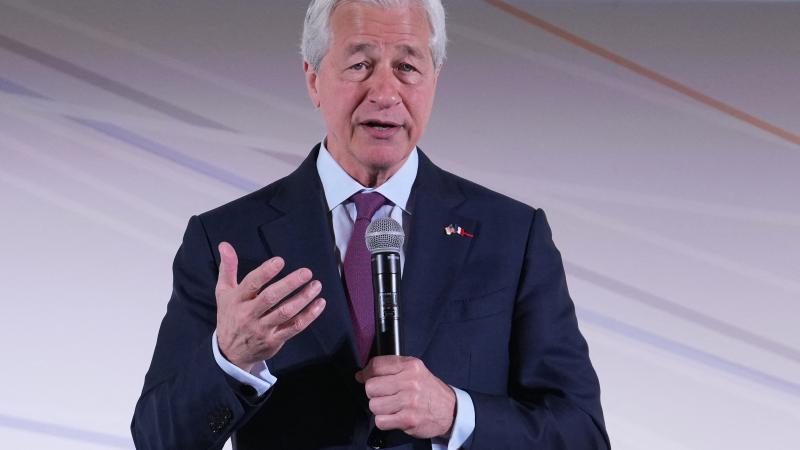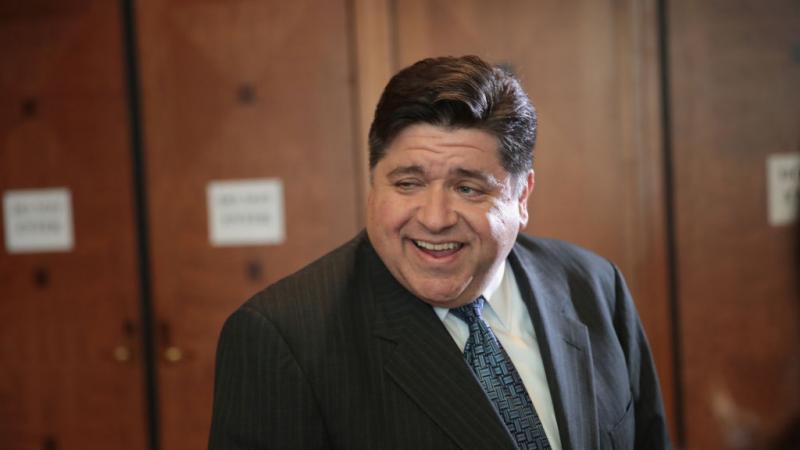FBI signature expert doubts Trump personally signed letter to Epstein: ‘Highly unlikely’
Retired FBI Special Agent Wayne Barnes, who ran an elite unit dealing with forgeries and disinformation for 29 years says he thinks the "Trump" signature looks affixed.
The retired FBI agent whom the bureau relied on for decades to analyze handwritten signatures in cases ranging from financial ripoffs to Russian spies is casting serious doubt that President Donald Trump hand-signed a two-decade-old birthday letter to the late Jeffrey Epstein, suggesting the first-name-only signature may have been artificially affixed.
Wayne Barnes, widely regarded as one of the nation's premier signature experts, analyzed the Trump signature at the request of Just the News after the House Oversight Committee released a photocopy of the letter in Epstein's 50th birthday book from the early 2000s.
Democrats immediately pounced on the revelation even though the president has adamantly denied writing or signing the letter, which has a sexually suggestive message imposed over a sketch of a woman's body.
The paper itself upon which the signature was placed was a giveaway
Barnes wrote in a detailed analysis report for Just the News that the signature appears similar to ones in letters that Trump signed for personal friends over the years when using only his first name. But the expert said he noticed a stunning clue when looking at the copy released by Congress and other personal letters: the coloration of the paper.
"Whoever created the dialogue page seems to have put a good deal of thought into it, but something was overlooked," Barnes wrote. "By far, the pages where Mr. Trump signs with his first name only, are outgoing letters where there is some coloration to the paper used. It is off-white or yellow-to-beige, but it never seems to be white.
"That means that if someone cut out an appliqué of the 'Donald' signature and tried to affix (paste or tape) it to a piece of white paper, the difference in color around the 'Donald' would stand out. So, the colored paper had to be photocopied onto a white page, so the trimming around the signature could take place and not be observed because of a different tone of the paper," he wrote.
"This would mean that the ultimate color of the target paper used, on which to place the applique, would also have to be white, which is the case with the dialogue page in the birthday book," he added.
Colored paper is Trump's standard
"But Mr. Trump’s standard is colored paper which, it is highly likely he would have used for any outgoing letter, no matter the recipient. It is just what he does. The creator of the dialogue page could not have made his creation appear 'real,' without it all appearing to be on white paper, which is against Mr. Trump’s personal standard," he finished. "It is unlikely that the culprit thought this far outside of the box, but as a professional investigator, it is in my wheelhouse to consider such things."
You can read the full analysis here:
Barnes cautioned he would prefer to analyze the original letter bound in the book for further clues, but said the evidence in the public realm gives him significant doubt Trump personally signed the Epstein letter.
"This is not a case of a thumbs-up or thumbs-down determination whether the first-name signature of Donald Trump on the single page of Jeffery Epstein’s 50th Birthday Book is his signature. It is much more complex," he wrote. "The lettering appears to be in the style of the way Mr. Trump writes his first name as an informal signature, and he very likely wrote those letters."
Expert: "Highly unlikely" a fraudulent, not forged signature
"But that does not mean he signed his name to the full page of dialogue, with curving lines drawn around it. A thorough investigation indicates it is highly unlikely that he penned (or with a felt-tip marker or Sharpie) or wrote his name beneath those dialogue lines and the drawing," Barnes wrote.
In another part of the report, Barnes offered his best assessment of what happened.
"The present case is an issue of someone applying another’s name to a place the named individual did not, or would not sign, of his own volition," he wrote. "That is, it is not a 'forged signature,' but rather a 'fraudulent signature.' The objective is to analyze all of the material and make a determination as to what occurred, from all of the available facts."
Barnes, a 29-year FBI veteran who mastered signature analysis while unmasking Soviet spies during the Cold War, currently works as a private investigator in Florida and is frequently called upon to testify in court cases.
Proved the repair receipt for Hunter Biden's laptop was real
Just the News previously asked Barnes to analyze a signature on a receipt associated with Hunter Biden's infamous laptop that was turned over to a Delaware repair shop.
In that case, Barnes concluded that the "R.H. Biden" signature — short for Robert Hunter Biden — on the receipt issued in spring 2019 from John Paul Mac Issac's repair shop in Delaware matched those on documents known to have been signed by the president's son, such as Social Security cards, driver's licenses and other public documents.
The FBI later confirmed that the receipt and laptop were authentic, and not "Russian disinformation" as some intelligence and law enforcement experts with personal animus towards Trump had alleged.
The "dialogue" is not something Trump would have written
In the Trump-Epstein matter, Barnes said he also analyzed other factors beyond the handwriting, including the fact that Trump says he had a personal break from Epstein in the 1990s, making it unlikely he would send a birthday letter in 2003.
He also noted that in most Trump signed personal letters, Trump handwrites a short, one or two-word message of congratulations or thanks that is personal, an aspect that is missing in the Epstein letter.
"If Mr. Trump really wanted to send a birthday greeting to Epstein, it would have been a single paragraph in a formal letter, maybe with a personal word or two written out, and then a first-name signature," Barnes wrote, citing the history of publicly released Trump letters to such luminaries as Hillary Clinton and the late TV host Larry King. "There is absolutely nothing in his correspondence history that smacks of anything even remotely similar to the dialogue page.
"This, plus the assertion that he and Epstein had a break in their relationship in the 1990s, so not only a letter of congratulations, but something as intricate and time-consuming as the dialogue page, would have been out of the question. It is just not something he does," he added.














